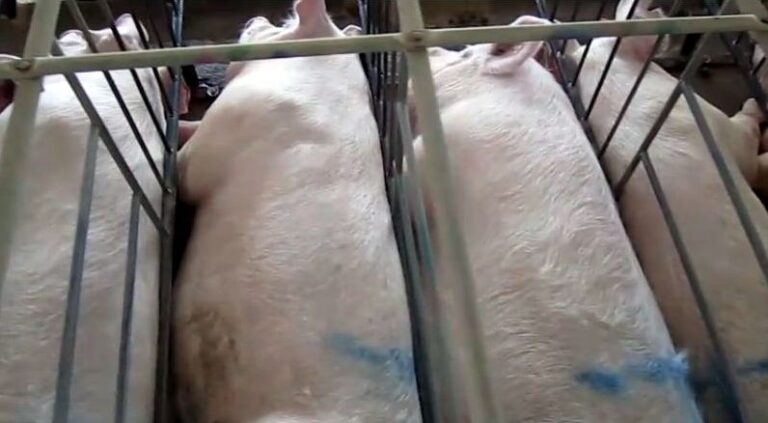California’s “Prop 12” is now fully in effect as of January 1st, allowing only food from farm animals housed under specific standards to be sold in the state. And it’s not the only state putting such limits in place that impact the entire food industry. While the laws vary from restrictions on in-state gestation crates for hogs to California’s full ban on sales of pork, eggs and veal from animals held in “extreme confinement” in or outside the state, they have extensive impact.
Currently, at least 15 states have passed policies on farm animal welfare, with the most common focused on the in-state use of animal confinement in pork, veal, and egg production; and by 2026, hog gestation crates will be banned in 10 states, which is expected to equate to 17% of U.S. pork producer operations.
It’s also not just the U.S. states setting such policies. For example, in late 2022 and early 2023, three Canadian Codes of Practice (veal cattle, pullets/laying hens, and bison) underwent a five-year review and the Canadian pig code of 2014 comes into effect July 1, 2024, requiring that mated gilts and sows be housed in groups, pens, or in stalls if provided with “periodic exercise.” By 2029, all farms are to be converted to enable group housing, with the periodic-exercise housing discontinued.
Although we would expect states and countries to continue implementing farm animal welfare policies, the Prop 12 controversy is not quietly disappearing. Despite a Supreme Court ruling upholding California’s right to limit sales in its state, a bill, S.2019 Ending Agricultural Trade Suppression (EATS) Act, is pending in Congress to disallow a state’s right to “impose a standard or condition on the pre-harvest production of any agricultural products sold or offered for sale in interstate commerce” if produced in another state. as long as production follows federal regulation and the laws of the state where produced. Additionally, a coalition of Attorneys General of 16 states submitted a letter to Congress decrying the Supreme Court decision and supporting the EATS Act, stating that “California’s radical climate change agenda does not account for farmers’ basic needs.”
While the extensive pushback on Prop 12 may (or may not) cause it to be overturned by federal regulation, it currently stands in full effect. And with California accounting for approximately 15% of the nation’s pork and 12% of the egg and veal consumption, companies that produce related product for all 50 states will need to determine how they will manage the limited options the law elicits.
With the restrictiveness of the law, some companies may determine that they will no longer be able to sell into California at all (or other states with restrictions), and simply pull all product from those states, reducing sales and profit. If a company does want to continue selling into restrictive states, do you separate your production into state-specific product? With the number of states implementing different rules, this is not a practical, or really even feasible.
So that leaves changing your production policies to comply with the most restrictive state law for each (pork, egg, veal) to enable nationwide distribution. Not easy, not cheap, and brings a host of other decisions, e.g.:
- Do you do the bare minimum to comply? Or, since you’re making changes anyway, do you work with an animal welfare expert to make it the best it can be?
- Given the expenses, do you pass along a price increase to consumers? If so, how do you deal with outcry on that? Or do you scrimp elsewhere to try to make up for it?
- What about the likelihood of reduced availability due to firms that couldn’t comply or quit selling in the state? Do you expand your operations to increase your output?
The issue is reminiscent of the patchwork of states’ GMO laws a few years back, which the federal government finally took in hand with the passage of the National Bioengineered Food Disclosure Standard of 2018. It also brings to mind the various state laws legalizing medical and/or adult-use marijuana, a decision on which the federal government is still backing off of.
We recently discussed the FDA’s seeming tendency to waffle on certain issues until states (generally California) take a stance, then putting out its own proposed regulation or standard (e.g., as it did for BVO, heavy metals in baby food, etc.). Whether USDA or the Supreme Court will follow a similar trend on this front, taking a stand after a state sets its regulation, is not clear, but it would certainly make it easier for the industry, and less expensive for consumers if a cohesive standard were set.
Meanwhile, with the various laws in place, if you need assistance on conforming to California’s, or any other state or federal, laws, give us a call. TAG has animal welfare experts who can assist.





